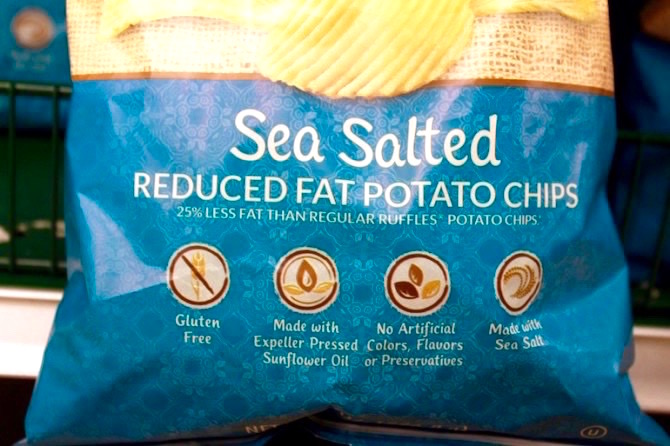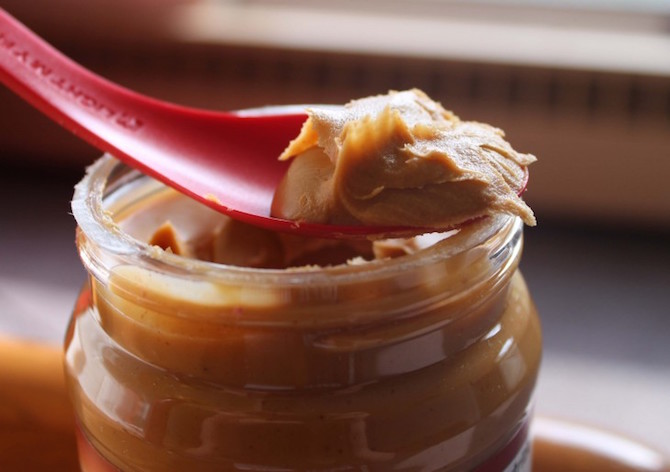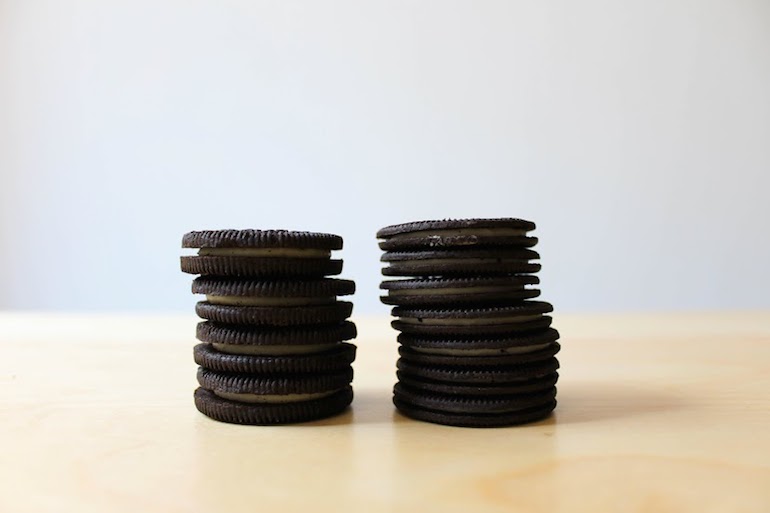There you are, standing in the aisle of the supermarket, gazing at your favorite snack food, when suddenly, you see it a food item labeled “reduced fat.” You take a moment to fan girl, strut over to it, and throw it right in the cart without even thinking twice. I mean clearly this is the best and healthiest choice, less fat, less everything-bad-for-you, right? Wrong. Unless you are preparing yourself for a mouthful of disappointment, do not, I repeat, DO NOT fall into the reduced fat trap.
The Problem With Reduced Fat

Photo by Jaye Lind
Reduced fat (usually) also means reduced flavor, increased sugar, and *gasp* THE SAME NUMBER OF CALORIES.
While a portion of the fat content in reduced fat and low-fat products is in fact lowered, all of the lost ingredients and flavor have to be made up somewhere. This is typically done with additives like corn starch, refined carbohydrates and sugar, for example.
While “reduced fat” does sound appealing, studies have come to find that reduced fat items can actually be more harmful and unhealthy than the original. Believe it or not, the fats naturally found in foods can be incredibly good for you.

Gif courtesy of giphy.com
Yes, you read that right.
The Good Thing About Fat

Photo by Maggie Gorman
While eating a diet which is dominated by fat is not the best option, some of the fats that naturally occur in foods can serve to be incredibly positive for your health.
Take the benefits of peanut butter for example:
- It is chock-full of mono and poly-saturated fats that promote a healthy heart (and are less likely to be stored as body fat).
- Due to peanut butter’s high protein and fiber content, peanut butter can actually promote weight loss as it keeps you full for a longer time and helps limit cravings. The high fiber content also helps to regulate blood sugar, keeping your energy high and your mind sharp throughout the day.
- PB is high in potassium, which enhances and supports metabolism, promotes heart health and can help even reduce stress and anxiety.
- Peanut butter is also very effective in both maintaining and promoting muscle growth (it’s basically spreadable muscle milk).

Gif courtesy of giphy.com
And PSA avocado lovers: if you didn’t already know, the nutritional content for avocados works the same way.
Still don’t believe me? Take milk’s favorite cookie for example; when comparing regular Oreos to reduced fat Oreos, the reduced fat Oreo really isn’t better than the original. While the reduced fat version does have a lower fat content (3.5g rather than 6.6g), it has 2.5g more carbohydrates, no potassium, and 1g more sugar. That said, the reduced fat Oreo ends up being only 10 calories less. Is it really worth the compensation and complication? Probably not.

Photo by Megan Prendergast
Now, all of this said, I am not condoning a full on binge of your favorite fatty foods, but I sure can help you feel better for it while also saving you from unnecessary disappointment.
Be a Super(market) Hero

Photo by Sunny Tang
Shopping in the supermarket can be dangerous (especially when you go in hungry). Don’t worry, I got you. Even though packaging can be tricky, just try to avoid anything with “reduced fat” or “low fat” (duh), packages that say “natural flavors with other natural flavors” (versus just “natural flavors”) and foods that use artificial sweeteners (like aspartame and sucralose).
If you’re gonna treat yo self, go all out and dig into the real deal, no exceptions.


